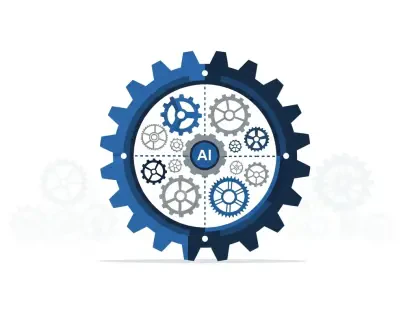The retail industry is undergoing a seismic shift driven by cutting-edge technologies, particularly artificial intelligence (AI). The potential for AI to revolutionize retail is immense, touching everything from customer service to supply chain management. But how exactly can AI help retailers create better customer experiences and operational efficiencies? This article explores the various ways AI is transforming the retail landscape.
Enhancing Customer Experiences with AI
Personalized Customer Service
In today’s competitive retail environment, customer service can make or break a business. AI enables personalized customer interactions by leveraging data analytics and machine learning algorithms. Through past purchase history and tailored recommendations, AI tools empower frontline staff to engage more effectively with customers. This personalized touch can lead to increased customer satisfaction and loyalty, making customers feel valued and understood on an individual level.
Personalized customer service also has a ripple effect, enhancing the overall brand experience. When customers receive targeted product recommendations, they are more likely to find what they are looking for and make a purchase. This not only boosts sales but also fosters a deeper connection between the customer and the brand. As AI continues to evolve, its ability to analyze vast amounts of data will further refine these interactions, making them even more nuanced and effective.
Responsive Kiosks and Displays
Facial recognition and demographic analysis are at the heart of AI-powered kiosks and displays. These technologies can offer dynamic product suggestions, making the shopping experience highly personalized and engaging. As customers move through the store, these smart displays can adapt to provide real-time recommendations based on customer behavior and preferences. This creates an interactive shopping experience that feels both intuitive and highly personalized.
Moreover, these responsive kiosks can collect and analyze data on customer interactions, providing valuable insights for retailers. By understanding which products attract attention and drive sales, retailers can fine-tune their in-store strategies. This data-driven approach allows for more effective merchandising and can even inform future product development. The combination of real-time personalization and data analytics makes AI-powered kiosks a powerful tool for modern retailers.
AI-Powered Chatbots
Chatbots have evolved into sophisticated assistants capable of handling a wide array of customer service tasks. These AI-powered entities can guide customers through purchases, provide instant support, and even offer personalized product recommendations. As a result, chatbots are not just enhancing customer interactions but also freeing up human staff for more complex tasks. This shift allows employees to focus on higher-value activities, such as building customer relationships and addressing unique challenges.
The efficiency of AI-powered chatbots extends beyond simple customer service queries. They can handle multiple interactions simultaneously, providing consistent and accurate information at all times. This ensures that customers receive timely responses, reducing wait times and enhancing overall satisfaction. Additionally, chatbots can collect valuable data on customer preferences and behaviors, which can be used to further personalize future interactions and improve the overall shopping experience.
Store Layout Optimization
AI can play a crucial role in optimizing store layouts by analyzing customer journeys and purchase patterns. Through sophisticated algorithms, AI can determine the most effective placement of products to maximize sales. This level of optimization not only enhances the customer shopping experience but also boosts overall store performance. By strategically placing high-demand items and complementary products, retailers can guide customers through an efficient and enjoyable shopping journey.
The benefits of AI-driven store layout optimization extend beyond increased sales. It can also lead to better inventory management and reduced operational costs. By understanding customer behavior, retailers can allocate resources more effectively, ensuring that popular products are always in stock and easily accessible. This proactive approach minimizes stock shortages and overstock situations, ultimately leading to a more streamlined and profitable retail operation.
Reducing Operational Costs with AI
Efficient Inventory Management
One of the most impactful ways AI can reduce operational costs is through efficient inventory management. AI systems can predict optimal ordering times, track sales accurately, and automate the reordering process. This leads to fewer stock shortages and less overstock, effectively cutting down on wasted resources and lost sales opportunities. By maintaining optimal inventory levels, retailers can ensure that their shelves are always stocked with the products customers want.
Efficient inventory management also has a significant impact on cash flow. By minimizing excess inventory, retailers can reduce the costs associated with storing and managing surplus stock. This frees up capital that can be invested in other areas of the business, such as marketing or store improvements. Additionally, AI’s predictive capabilities can help retailers anticipate future trends and adjust their inventory strategies accordingly, ensuring long-term efficiency and profitability.
Optimized Scheduling
Managers often spend a significant amount of time on employee scheduling. AI-driven scheduling tools can predict peak business hours and allocate staff accordingly. This ensures optimal personnel coverage, reduces labor costs, and allows managers to focus on strategic tasks rather than administrative duties. By leveraging AI for scheduling, retailers can achieve a better balance between labor expenses and customer service needs, ultimately enhancing overall efficiency.
Optimized scheduling also improves employee satisfaction and retention. By accurately predicting busy periods and ensuring appropriate staffing levels, AI can help reduce employee stress and burnout. This leads to a more motivated and engaged workforce, which can positively impact customer interactions and overall store performance. Furthermore, AI-driven scheduling can accommodate employee preferences and availability, creating a more flexible and supportive work environment.
Cost Analysis and Forecasting
AI can also streamline financial operations by analyzing spending inefficiencies and forecasting retail cycle changes. These insights can help retailers make informed decisions regarding budgeting and resource allocation, ultimately leading to more sustainable business practices. By identifying areas where costs can be reduced or better managed, AI enables retailers to optimize their financial performance and invest in growth opportunities.
Moreover, AI-driven cost analysis and forecasting can enhance strategic planning. By predicting seasonal trends and market shifts, retailers can develop more effective marketing and sales strategies. This proactive approach allows businesses to stay ahead of the competition and adapt to changing customer demands. As AI technology continues to advance, its ability to provide accurate and actionable insights will become increasingly valuable for retailers looking to achieve long-term success.
Boosting Supply Chain Optimization with AI
Vendor and Shipping Cost Monitoring
AI can enhance supply chain management by monitoring vendor performance and shipping costs. These systems can flag cost discrepancies and identify more cost-effective options, allowing retailers to make adjustments that improve overall efficiency and reduce expenditures. By continuously analyzing vendor data, AI can help retailers negotiate better terms and ensure they receive the best value for their investments.
Vendor and shipping cost monitoring also contribute to better decision-making. With real-time data at their fingertips, retailers can quickly identify and address issues that may impact their supply chain. This proactive approach minimizes disruptions and ensures a smooth flow of goods from suppliers to stores. Additionally, AI can provide insights into supplier reliability and performance, allowing retailers to build stronger, more efficient partnerships.
Bottleneck and Disruption Management
Supply chains are often susceptible to disruptions, which can have a significant impact on business operations. AI can proactively detect potential bottlenecks and disruptions, allowing retailers to make necessary adjustments in real-time. This capability ensures a smoother, more reliable supply chain by identifying issues before they escalate into major problems. By leveraging AI for bottleneck and disruption management, retailers can maintain high levels of productivity and customer satisfaction.
The benefits of AI-driven disruption management extend beyond immediate problem-solving. By analyzing patterns and trends, AI can help retailers develop more resilient supply chains that are better equipped to handle future challenges. This long-term approach to supply chain management can lead to improved operational efficiency and reduced costs. As the retail industry continues to evolve, the ability to anticipate and mitigate disruptions will become increasingly important for maintaining a competitive edge.
Error Reduction through Forecasting
Forecasting errors can be a major source of inefficiency in the supply chain. Advanced AI algorithms can reduce these errors by up to 50%, making supply chain operations more accurate and reliable. This not only boosts efficiency but also enhances the retailer’s ability to meet customer demand seamlessly. By providing accurate demand forecasts, AI helps retailers optimize their inventory levels and minimize the risk of stockouts or overstock situations.
Error reduction through AI-driven forecasting also improves overall supply chain visibility. With a clear understanding of future demand, retailers can collaborate more effectively with suppliers and other stakeholders. This leads to better coordination and planning, ultimately resulting in a more streamlined and responsive supply chain. As AI technology continues to advance, its ability to provide precise and reliable forecasts will become an invaluable asset for retailers looking to optimize their supply chain operations.
Assisting in Fraud Detection and Prevention with AI
Behavioral Analysis
Fraud detection is becoming increasingly complex, especially with the rise of e-commerce. AI excels in identifying fraudulent activities by analyzing behavioral patterns and detecting anomalies. This ability to flag suspicious behavior in real-time is invaluable for retailers aiming to protect their businesses and customers. By leveraging AI for fraud detection, retailers can stay one step ahead of fraudsters and minimize the risk of financial losses.
Behavioral analysis powered by AI also enhances the accuracy of fraud detection efforts. Traditional methods often rely on static rules and predefined patterns, which can be easily bypassed by sophisticated fraudsters. In contrast, AI continuously learns and adapts to new threats, making it more effective at identifying emerging fraud tactics. This dynamic approach ensures that retailers can respond to evolving threats and maintain a high level of security for their customers.
Unauthorized Purchase Prevention
AI algorithms can prevent unauthorized transactions by identifying inconsistencies in purchasing behaviors. Whether it’s a stolen credit card or a fraudulent chargeback, AI can detect these issues more effectively than traditional methods, reducing the risk of financial loss for retailers. By analyzing a wide range of data points, AI can quickly identify red flags and take action to prevent fraudulent transactions before they occur.
The benefits of AI-driven unauthorized purchase prevention extend beyond immediate financial protection. By detecting and preventing fraud in real-time, AI helps retailers build trust with their customers. Shoppers are more likely to feel secure knowing that the retailer is actively working to protect their information and transactions. This increased trust can lead to stronger customer loyalty and a better overall shopping experience.
Account Takeover Detection
AI can identify when an account has been compromised by monitoring for unusual activities that deviate from normal user behavior. This can help in the early detection and prevention of account takeovers, which can be particularly damaging for both the retailer and the customer. By alerting the user and implementing additional security measures, AI can mitigate the impact of such breaches and protect sensitive customer information.
The retail industry is currently going through a profound transformation, largely propelled by advanced technologies, especially artificial intelligence (AI). The capability of AI to revolutionize retail is substantial, influencing areas such as customer service, product recommendations, and supply chain management. For retailers, the integration of AI tools can significantly enhance customer experiences and drive operational effectiveness. Imagine a world where AI algorithms help predict consumer preferences, enabling personalized shopping experiences. Additionally, AI-powered chatbots and virtual assistants can ensure immediate customer support, boosting satisfaction and loyalty. On the operational side, AI can streamline inventory management by predicting stock needs, thereby reducing waste and out-of-stock scenarios. Furthermore, dynamic pricing powered by AI can optimize pricing strategies based on real-time data analysis. This article delves into the numerous ways AI is reshaping the retail industry, offering a glimpse into a more efficient and customer-focused future driven by technological innovation.









